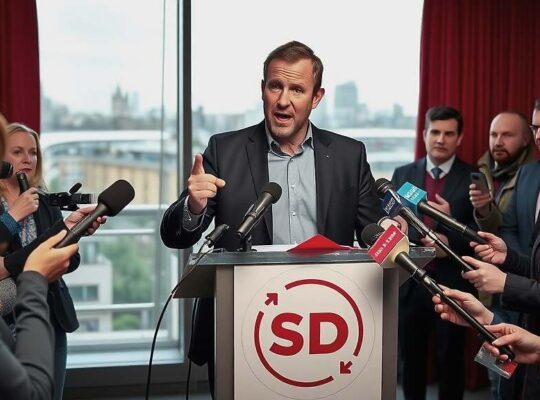The Christian Democratic Union (CDU) has sharply criticized the left-wing faction within the Social Democratic Party (SPD)’s attempt to halt the planned reform of the Bürgergeld (citizen’s allowance) through a member petition, escalating tensions within Germany’s fragile ruling coalition.
Dennis Radtke, Chairman of the CDU’s worker’s association, deemed the initiative “bizarre” in an interview with “Handelsblatt”, questioning its impact on both coalition harmony and the SPD’s leadership. He emphasized the potential for damaging signals arising from such internal dissent. Steffen Bilger, parliamentary director of the CDU/CSU parliamentary group, underscored that a significant majority – approximately 80 percent – of SPD members had previously endorsed the coalition agreement, intrinsically including the Bürgergeld reform. He affirmed the coalition’s commitment to implementing the reforms “as agreed” explicitly ruling out a reversal of the planned changes regarding the citizen’s allowance and shift to basic security.
The move by the SPD left represents a direct challenge to the reform package, which aims to tighten eligibility requirements and incentivize job-seeking. Franziska Drohsel, a key initiator of the member petition, expressed optimism regarding its success, stating her support for broader reforms such as wealth and inheritance taxes. However, she vehemently opposes what she sees as the current reform’s punitive approach to unemployment, arguing that it unjustly portrays job seekers as unwilling to work, leading to potentially devastating sanctions that could result in the loss of housing. Drohsel characterized such measures as “wrong, unsocial and, furthermore, unchristian.
The escalating dispute highlights a deeper ideological rift within the SPD, potentially jeopardizing the stability of Chancellor Scholz’s government. The petition’s success would signify a significant victory for the left wing and could force a reconsideration of the Bürgergeld reform, which has already faced criticism from various social welfare organizations who fear it will disproportionately impact vulnerable populations. The impending presentation of over 4,000 signatures to the SPD executive signals a substantial level of member discontent and underscores the complexities of navigating reforms in a coalition government.












